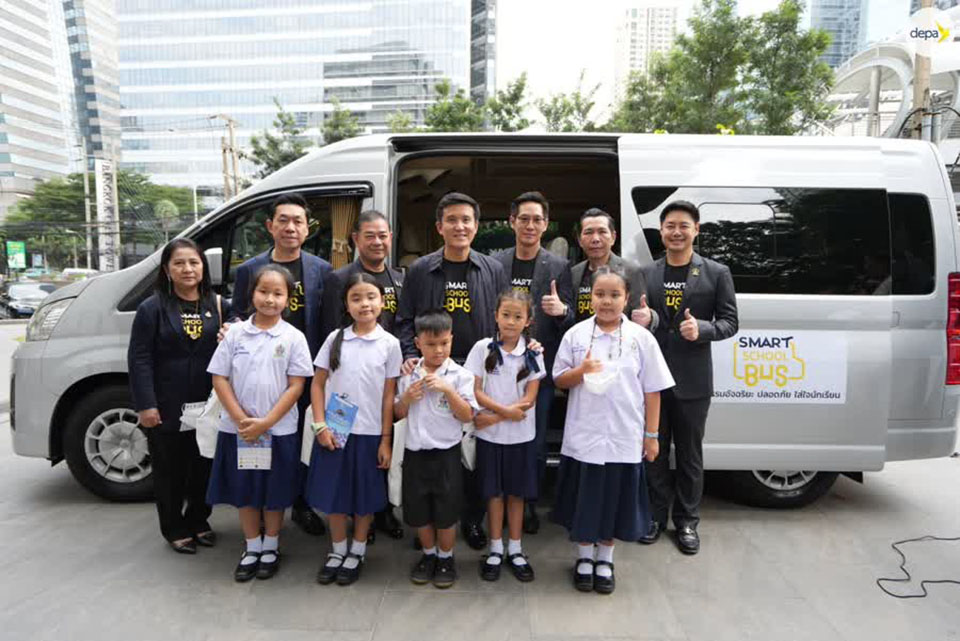
Children being unknowingly left inside a vehicle have become a more common occurrence. The Digital Economy Promotion Agency has introduced a new system that aims to prevent these incidents, using sensors and AI technology to ensure no children are on school buses at the end of service.
The Digital Economy Promotion Agency (DEPA) has introduced a new system for school buses and vans that helps schools and parents track the status of students onboard, providing an additional layer of safety protection against cases of children being left alone inside vehicles.
Called Smart School Bus, the system features a GPS system to track the vehicle’s location, student tracking devices, and an artificial intelligence (AI) system to process and report information such as the vehicle speed, conditions, and the status of children onboard.
Information provided by vehicles equipped with this system will be sent to parents via a companion app, and will be accessible by schools online. Parents will receive a notification once the vehicle is close to home, when their children get off the vehicle at school, and when their children reach home.
The Smart School Bus system is also equipped with motion sensors, which work together with tracking devices to detect any children left inside a vehicle. Schools can make a direct call to such vehicle, allowing them to talk to the trapped children.
The project, which has received sponsorship from the Ministry of Digital Economy and Society, will be piloted first in Bangkok, Chiang Mai, Khon Kaen, Phuket, Chonburi, Rayong, and Chachoengsao.
There are so far some 3,000 school vans and buses equipped with the system across some 300 public schools, with a plan to install the system on some 500 vehicles operated by private schools. DEPA expects the pilot campaign to benefit no fewer than 5,000 young students. (NNT)
 |
 |
 |





